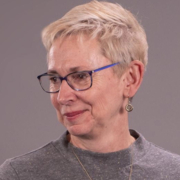- Level Foundation
- Duration 13 hours
- Course by Imperial College London
-
Offered by

About
The Global Diseases Masterclass is part of the full-degree Masters of Public Health that the School of Public Health. By the end of this specialisation, our aim is that students will be able to critically apply epidemiological concepts to major global diseases and be able to appraise and recommend policy options to combat them. Global Diseases Masterclass: Global Disease Distribution In this course, we will introduce students to the most important trends and pattern in health and disease on a global scale. We will look at how health has improved over time, examine the trends for the future and look at between and within-country inequality in health. We will look at the methods that lie behind those statistics and think about different ways in which health can be conceptualised and measured. The course ends by considering the reason that might lie behind the patterns that we’ve pointed out and introducing the distinction between direct and structural interventions.The course ends by considering the reasons that might lie behind the patterns that we’ve described and introducing the concept of structural interventions.Modules
Introduction to Global Disease Masterclass
1
Discussions
- Nice to meet you!
1
Videos
- Welcome to Global Disease Masterclass
3
Readings
- About Imperial College & the team
- How to be successful in this course
- Grading policy
Disease Distributions and Trends
1
Discussions
- Trends in Global Health and Disease
4
Videos
- Intro to Content
- Patterns in Global Health and Disease
- Important Trends in Global Disease
- Trends in Global Health and Disease
1
Readings
- Important Trends in Global Disease
Interpreting data
2
Assignment
- E-tivity- IHME Data Quiz
- End of Week Quiz
4
Videos
- Using IHME Data
- IHME Example: Global Epidemiology Trends
- Patterns and Inequalities within Countries
- Reflections on Contemporary Trends in Global Disease
2
Readings
- E-tivity- IHME Data
- Additional Readings
Where does health data come from?
1
Discussions
- Death Statistics by Country
3
Videos
- Health Data Sources
- Estimating Cancer Statistics
- Estimating HIV Statistics
Disease estimates
1
Assignment
- Disease Data Sources and Estimates
1
Discussions
- E-tivity- Generation of Estimates
1
Videos
- Roundtable - Challenges with Making Estimates
1
Readings
- Generation of Estimates
Evaluating health
1
Assignment
- Diseases Affected by these Parameters
1
Discussions
- E-tivity: Diseases Affected by these Parameters
4
Videos
- Metrics for Evaluating Health (pt1)
- Metrics for Evaluating Health (pt2)
- Changing Metrics, Changing Impact
- Changing Metrics, Changing Impact
1
Readings
- Introduction to the Week
DALYs
2
Assignment
- E-tivity - Disability Weight Survey
- End of Week Quiz
1
Videos
- Creation of DALY Estimates
1
Readings
- DALY Estimates
Determinants of disease and health inequalities
2
Discussions
- E-tivity- Exploring Inequalities Between Countries
- Exploring health inequalities between countries
2
Videos
- Introduction to Determinants of Disease
- Examples of Disease and Their Determinants
2
Readings
- E-tivity- Exploring Inequalities Between Countries
- Underlying Causes Relating to Examples
Deterministic Frameworks
1
Assignment
- End of Lesson Quiz
1
Videos
- Deterministic Frameworks and Structural Interventions
1
Readings
- Deterministic Frameworks
Structural interventions for Health
1
Peer Review
- Constructing Disease Profiles
3
Videos
- Structural Interventions for Health
- Structural interventions - a conversation with a policy maker
- Wrap Up
Auto Summary
Join the Global Disease Masterclass: Global Disease Distribution, a comprehensive course offered by Coursera in the Health & Fitness domain. Led by experts from the School of Public Health, this 780-minute course delves into global health trends, disease patterns, and inequalities. Ideal for foundation-level learners, it covers epidemiological concepts and policy recommendations. Subscription options include Starter and Professional tiers. Perfect for those aiming to understand and impact global health.

Helen Ward

Timothy Hallett


